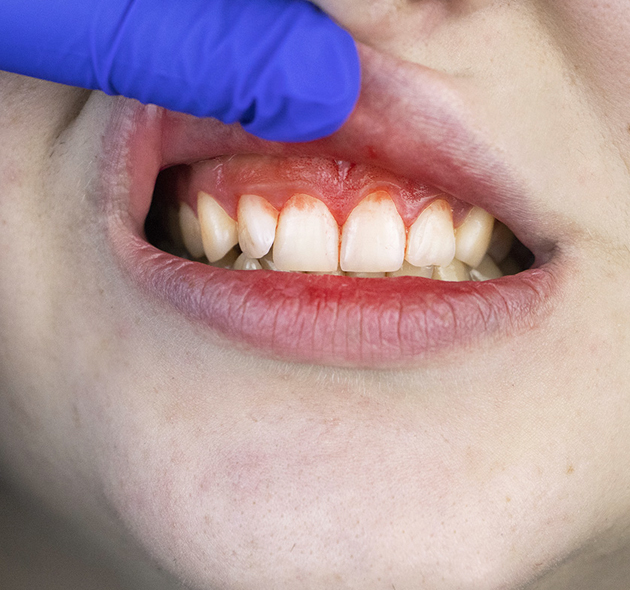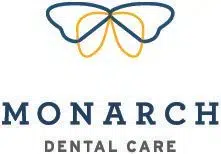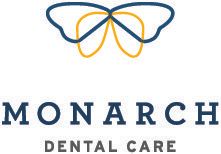
Recognize and Treat Early Periodontitis
As a trusted dentist in Prairie Village, KS, Dr. Alex Clark understands the importance of maintaining good oral health and preventing dental problems before they progress. Gum disease is a common condition that affects many people, and, if left untreated, can lead to serious dental problems. By understanding the signs and seeking treatment early, you can prevent the condition from progressing to advanced periodontal disease and ensure good oral health for years.
If you’re ready to schedule a dental cleaning, contact Monarch Dental Care by calling (913) 362-4488 to book your appointment.
What is Early Periodontitis?
Early periodontitis is a stage of gum disease characterized by inflammation of the gums caused by tartar and plaque buildup. This inflammation is due to bacteria in the plaque, which can harden into tartar if not removed. As the condition progresses, periodontal pockets may form between the teeth and gums, leading to potential infection and damage to the bone supporting the teeth. Early periodontitis is often painless, making it easy to overlook, but if left untreated, it can develop into more severe forms of gum disease, resulting in tooth loss and other serious dental problems.
Signs of Early Periodontitis
Identifying early periodontitis can help in preventing its progression. Common signs include:
- Red and Swollen Gums: Inflammation causes the gums to become red, swollen, and shiny.
- Bleeding Gums: Gums may bleed during brushing or flossing, which is a common symptom of gum disease.
- Gum Sensitivity: Tenderness and sensitivity of the gums, causing discomfort while brushing, flossing, or eating.
- Bad Breath (Halitosis): Persistent bad breath caused by bacterial toxins.
- Receding Gums: Gum tissue may pull away from teeth, making them appear longer.
- Formation of Pockets: Shallow pockets between teeth and gums that can trap food and bacteria.
- Loose Teeth: Weakening of the supporting bone and gum tissue can lead to teeth becoming loose.
How Dr. Clark Diagnoses Your Gum Disease Stage
Dr. Clark uses a comprehensive approach to diagnose the stage of your gum disease, which may include:
- Visual Inspection: Examining teeth and gums for signs of inflammation, bleeding, discoloration, and plaque buildup. Checking for periodontal pockets.
- Probing: Using a periodontal probe to measure the depth of pockets between teeth and gums. Healthy pockets are usually one to three mm deep; deeper pockets may indicate gum disease.
- X-rays: X-rays are taken to assess bone loss around teeth and jaw, which is often associated with periodontal disease.
Based on these evaluations, Dr. Clark can determine if you have early periodontitis and develop an appropriate treatment plan.
Early Periodontitis Treatment Options
Early intervention is key to managing gum disease (periodontitis). If you've been diagnosed with early-stage periodontitis, your dentist will recommend a personalized treatment plan based on the severity of your condition. Here's a breakdown of common treatment options:
Scaling and Root Planing (Deep Cleaning)
Scaling and root planing is a non-surgical procedure that removes plaque and tartar (calculus) buildup from your teeth and root surfaces. Special instruments are used for a thorough cleaning, helping reverse gum disease symptoms.
Targeted Antibiotics
In some cases, your dentist might prescribe antibiotics to control bacterial infections in your gums. These antibiotics can be taken orally or applied directly to the affected areas.
Enhanced Oral Hygiene Routine
Regardless of the stage, gum disease requires consistent good oral hygiene practices at home. Brushing twice daily with a soft-bristled brush, daily flossing, and using an antiseptic mouthwash are essential to prevent further progression.
Regular Dental Checkups and Cleanings
Maintaining excellent oral health requires regular dental cleanings and exams. While typically recommended twice a year, your dentist might suggest more frequent cleanings for early-stage periodontitis.
Lifestyle Modifications
Your dentist might advise adopting healthy lifestyle habits to improve overall health and support periodontal treatment. This may include quitting smoking, reducing alcohol intake, and maintaining a balanced diet.
Preventing Gum Disease
Gum disease, also known as periodontitis, is a serious infection that affects the tissues surrounding your teeth. Left untreated, it can lead to tooth loss and even impact your overall health. The good news is that gum disease is largely preventable with a proactive approach to oral hygiene and regular dental care.
- Brushing: Brush your teeth thoroughly twice a day for two minutes using a soft-bristled toothbrush and fluoride toothpaste. Pay close attention to the gum line, where plaque and bacteria accumulate. Consider using an electric toothbrush for a deeper clean.
- Flossing: Flossing daily removes plaque and food particles from between teeth, where brushing alone can't reach. There are various flossing tools available, so find one that works best for you.
- Antiseptic Mouthwash: Incorporate an antiseptic mouthwash into your routine, following the manufacturer's instructions. While not a replacement for brushing and flossing, mouthwash can help reduce plaque and freshen breath.
- Maintain a Healthy Diet: A balanced diet rich in fruits, vegetables, and whole grains provides essential nutrients to support your oral health. Limit sugary drinks and foods, as they can contribute to plaque buildup.
- Don't Smoke: Smoking is a major risk factor for gum disease. Quitting smoking is one of the most effective ways to protect your oral health and overall health.
Frequently Asked Questions
Stop Gum Disease Before it Happens with Dr. Clark
If you suspect that you may be experiencing symptoms of early-stage periodontitis, don’t hesitate to contact our Prairie Village dentist today to schedule an appointment. With years of experience in providing top-quality dental care, we have the expertise and knowledge to diagnose and treat early periodontitis effectively.
Our friendly and experienced team is committed to helping you achieve optimal oral health and providing you with personalized care tailored to your unique needs. Contact us today at (913) 362-4488 to schedule your appointment and take the first step towards a healthy, beautiful smile.

